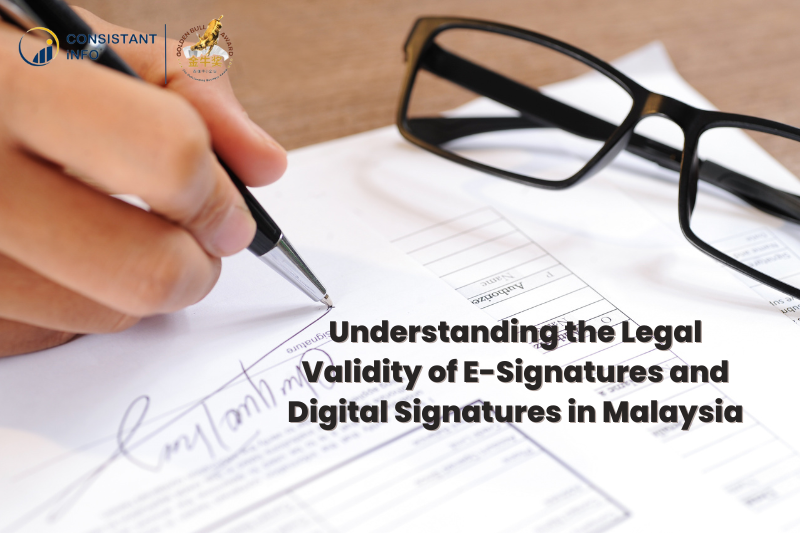
Understanding the Legal Validity of E-Signatures and Digital Signatures in Malaysia
With the rapid growth of e-commerce and digital transformation, electronic signatures (e-signatures) have gained popularity for their simplicity. They allow users to sign documents online with just a click, mimicking a handwritten signature on a document. However, while e-signatures are convenient, their legal validity can sometimes be ambiguous.
Differences Between E-Signatures and Digital Signatures
E-Signatures:
- E-signatures are essentially images placed on documents.
- They lack secure coding or encryption.
- Unlike digital signatures, they do not include time and identity stamping, making them vulnerable to tampering.
- Verification of document integrity often requires vendor assistance.
- Changing vendors can result in loss of stored signatures, as these are kept on the vendor’s servers.
Digital Signatures:
- Digital signatures use advanced technology for secure coding and encryption.
- They provide a permanent record with time and identity stamping.
- They are more secure and can regulate tampering more effectively than e-signatures.
Legal Validity of E-Signatures in Malaysia
Under the Electronic Commerce Act (ECA) 2006, the legal standing of e-signatures varies:
Legally Valid Uses of E-Signatures:
- HR documents such as employment contracts, terms and conditions, and onboarding documents.
- Internal organizational documents used within a business.
- Commercial real estate documents like lease agreements, sales, and purchase contracts.
- Minutes of meetings and resolution passages (depending on the company’s constitution).
Documents Where E-Signatures Lack Legal Validity:
- Power of Attorney documents.
- Wills and Trust documents.
- Negotiable instruments such as bills of exchange and promissory notes.
- Statutory declarations and similar documents.
The Practicality of Paperless Agreements in Malaysia
Paperless agreements offer numerous benefits for businesses in Malaysia, including environmental sustainability, ease of processing, and enhanced security. However, users must be aware of the legal implications when choosing between e-signatures and digital signatures.
Key Takeaways:
- E-signatures are practical for many business documents but may not be legally valid for more formal or legally sensitive documents.
- Digital signatures provide a higher level of security and legal assurance.
- It is crucial to understand the specific legal requirements and implications of using either type of signature in Malaysia.
By understanding these distinctions and the legal framework under the ECA 2006, businesses can make informed decisions on the appropriate use of e-signatures and digital signatures for their document needs.
